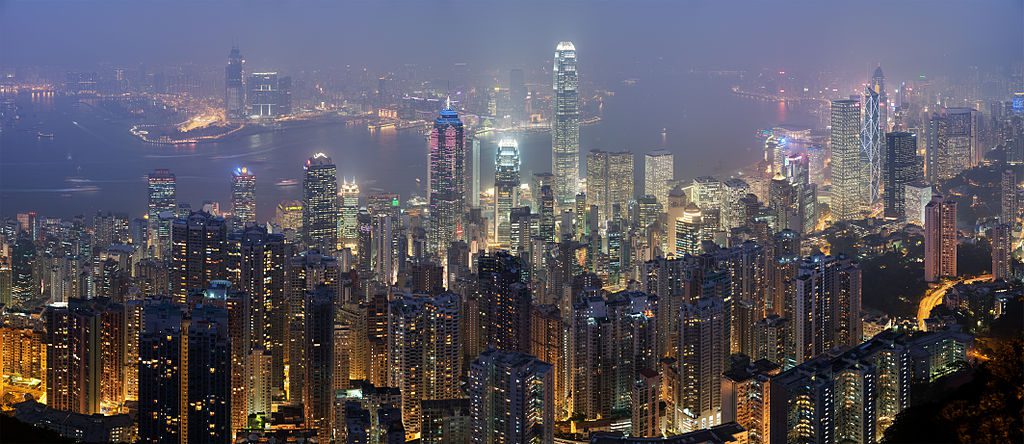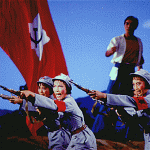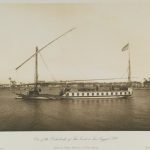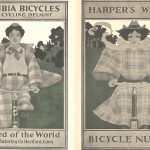Hong Kong is a strange place in which to research the past. This dizzyingly dense city of seven million people moves faster than either New York or London. As any resident can tell you, trains on the MTR arrive every three minutes and you will have cell phone service for the entire journey. Buildings from the 1970s are considered old and rapidly fall to make way for opulent luxury towers and designer stores. Real estate speculation is the local obsession, while historical preservation remains a funny fringe interest. From the bottom to the summit of Hong Kong’s steep socioeconomic pyramid, the name of the game is making and spending money. And whether they are pursuing degrees, scoping flat prices, or waiting in line to exchange an iPhone 4S for that new iPhone 5, most Hong Kongers are relentlessly focused onward and (hopefully) upward.
To research and write for a living is thus already odd. But it is the approach of a historian that most often baffles people here. At meals and social events, I find myself explaining primary source research to people who think I am kidding. They assume that I should just read other scholars’ books all day in some windowless dungeon. When I explain that instead I spend my time looking through collections of old documents, there is often a double take. People love to hear that I have to wear white gloves and they giggle with glee when I affirm that no one monitors when I arrive or leave. Their grin wryly says “Oh, I’m onto your game now!” Occasionally someone will lean in and ask, “Where exactly do you go to do this?” Most have never heard of this peculiar place called “The Public Records Office.”
This disbelief only grows when I explain what I study. If I answer broadly “U.S. and modern Chinese history,” a telling response is “Well, which is it?” Due to nationalistic textbooks and the sensationalist media in both countries, America and China figure in public thinking as such radically divergent, oppositional entities that their histories could not possibly interlink. And when I answer more specifically that I study Americans living in Hong Kong from 1937 to 1997, their expressions transform from curiosity to pity. “What a fool!” their arched eyebrows and pursed lips convey. In most Hong Kongers’ eyes, this topic seems nonexistent or even slightly absurd. Several people have questioned, “You mean British people in Hong Kong, right?”
Ironically, I love these reactions. As a historical guppy in a maelstrom of corporate sharks and glamorous clownfish, I then receive this amazing gift—the thrilling, brief, and fleeting opportunity to say something that will change their mind. I comb through research treasures gleaned from the archive and interviews to convey why I choose to spend my time in this way. Do you know that posh and prestigious social club? Well, did you know its first Chinese member was a Hong Kong heiress who was denied admission before she became an American and used her new citizenship to shatter their segregation? Or what about any of these signature Hong Kong companies, all of which were founded by Americans living here? And what about that university that you attended? You might not guess that the man who built it almost singlehandedly was a tireless Chinese American scholar!
My hope in these exchanges is not to appear smug, or simply to impress people here, or even to prove my topic’s value. My earnest and naïve wish is to force them just to wonder—to pause in the headlong profit race and see the magical Hong Kong that I do. For here is where Sun Yat-sen, Ho Chi Minh, and José Rizal each took refuge, forever changing the future of China, Vietnam, and the Philippines. Hong Kong is not the periphery of China but the capital of the global China diaspora. Hong Kong has been a nexus of globalization for nearly two centuries and has the historical Armenian, Parsee, Sikh, Hyderabadi, Russian, Filipino, West African, Portuguese, French, Dutch, Swiss, Italian, Japanese, Korean, and American communities to prove it. Despite all its achievements and its many reinventions, Hong Kong rarely takes pride in its momentous historical significance. Perhaps perpetual redevelopment makes the past difficult to envision. But when I tell people what I do here, at heart I am really hoping to share what I know to be true—that Hong Kong’s past is impossibly global and startlingly rich.
Although it is more comfortable to be a graduate student in the nurturing scholarly cocoon of UT, this experience of constantly explaining myself to non-academics keeps the overwhelming endeavor of dissertation research in sparkling perspective. Every day, Hong Kong’s bustle reminds me how strange my work is and how lucky I am. This city unexpectedly reminds me of what scholarship should really be about—sharing the knowledge that we are so privileged to cultivate and harvest. On the opposite side of the planet from Austin, my heart still races when the archivists bring me my daily trove of dusty folders and crumbling papers. And I can’t wait to tell my friends about what I find.
You may also enjoy:
NEP podcasts of interviews with graduate students about doing dissertation research
Jessica Luther on writing messy history
Photo Credit:
Photo by DAVID ILIFF. License: CC-BY-SA 3.0




